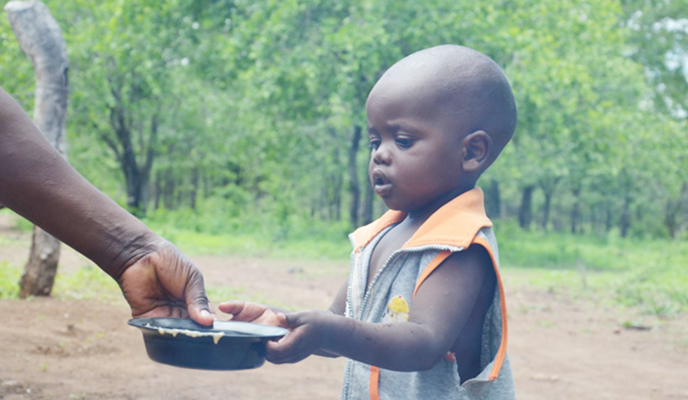
GOVERNMENT has expressed concern at the increasing number of hunger-induced school dropouts, and has promised to mobilise resources to urgently roll out a feeding programme in the worst affected parts of the country.
BY NQOBANI NDLOVU
Primary and Secondary Education deputy minister Paul Mavhima said the first phase of the programme would target early childhood development (ECD) pupils, before spreading to senior classes.
“We are receiving several reports that students are no longer going to school because of the hunger situation. This is a national issue,” he told Southern Eye on Wednesday.

“There are ministries that are responsible for that [food aid], but what you need to know is that, from our Ministry of Primary and Secondary Education, we are coming up with a programme for schools feeding,” he said.
The latest intervention comes in the wake of serious food shortages in most parts of the country, with at least three million people said to be in urgent need of food aid.
Livestock has also not been spared due to lack of pastures, as a result of erratic rains this season.
- Chamisa under fire over US$120K donation
- Mavhunga puts DeMbare into Chibuku quarterfinals
- Pension funds bet on Cabora Bassa oilfields
- Councils defy govt fire tender directive
Keep Reading
“We can’t do it alone as the Primary and Secondary Education ministry. The Finance ministry has to provide the financial resources we need, the Social Welfare ministry also has to provide services, especially for the most vulnerable. An acceptable situation will be where each school provides at least one meal for students starting with younger ones at infant schools,” Mavhima said.
He said government was willing to provide grants to schools to enable them to buy food and provide meals on a permanent basis.
“An optimal arrangement will be one where every school provides meals to students, not as a stop gap measure, because we have drought now, but as a permanent arrangement for all schools. This can be done innovatively by empowering communities to produce food.
“The communities can do agriculture and feed into this programme and schools will then pay them through grants from central government or from locally generated resources,” Mavhima said.
Education officials late last year admitted thousands of students, mostly in Matabeleland North, were already skipping lessons due to food shortages.
As a stop gap measure, government allowed schools in Matabeleland North to introduce short working hours to enable the pupils to go home early.
Meanwhile, the National Youth Development Trust has given thumbs up to the programme, saying it was not only a necessity, but a constitutional right for children to be provided with education and food.










